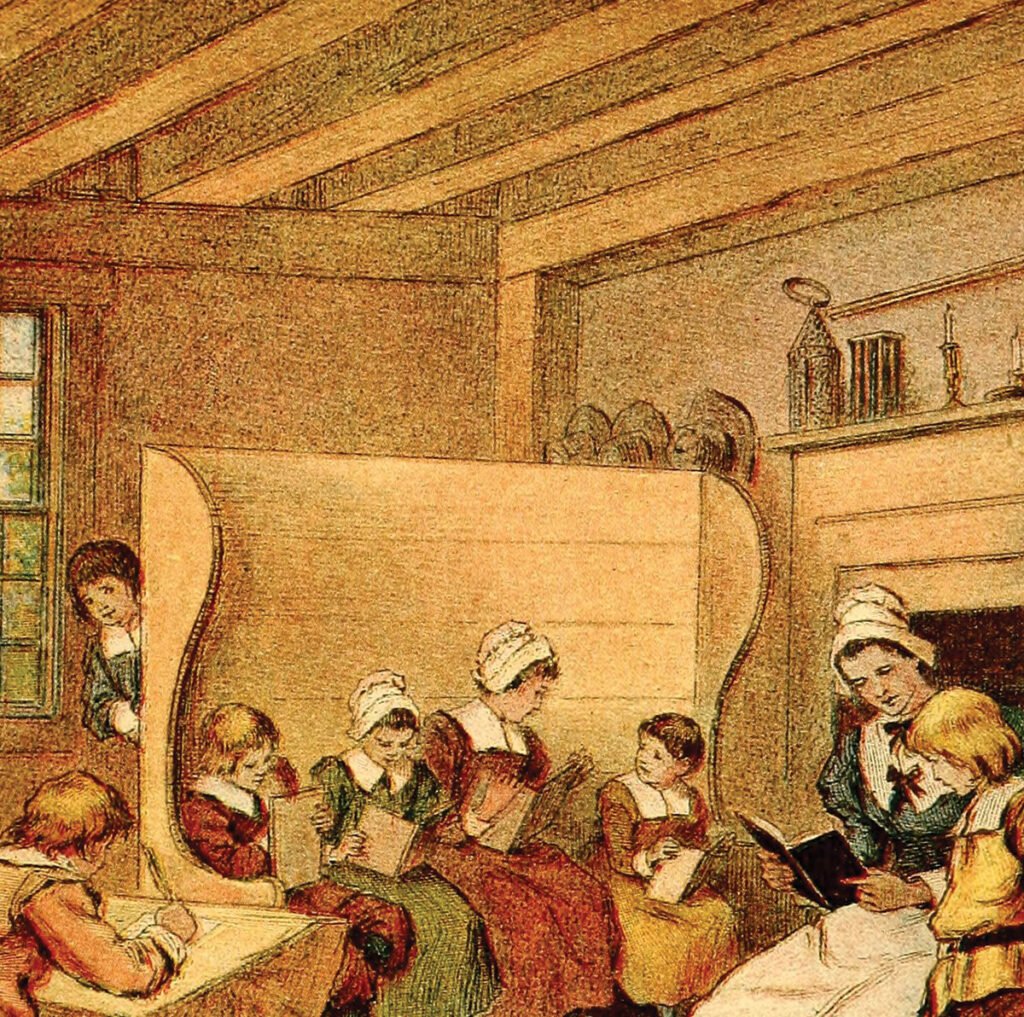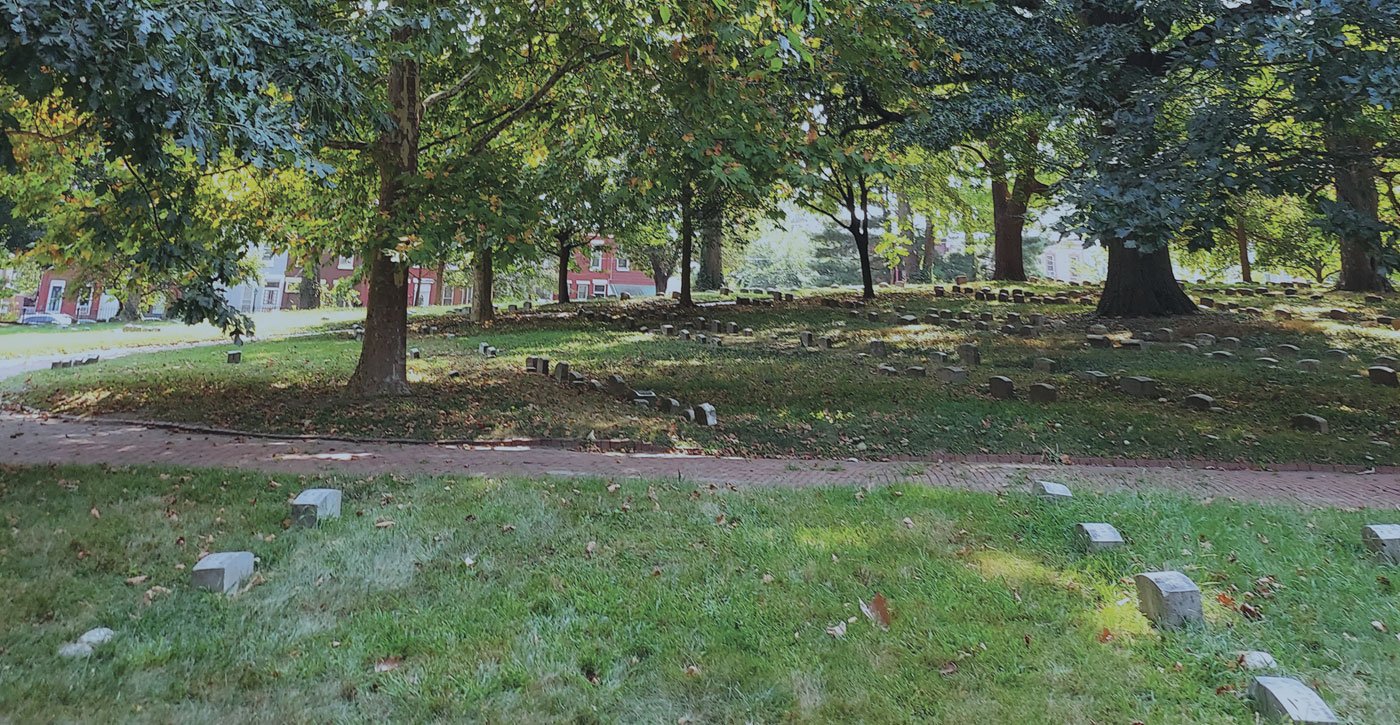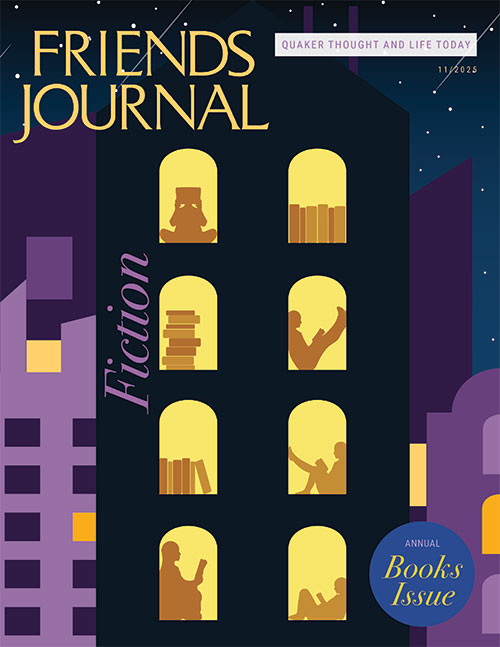Wandering in abandoned cemeteries picking fragrant wildflower blooms, I listened to the forgotten. Someone whispered, “Please remember me; I am all alone.” My imagination, you say? You would be mistaken. Ghosts are present everywhere, especially behind old Quaker meetinghouses in quiet burial grounds.
They lived in silence when they were alive, but a few want to speak now. Many ghosts belong to others, but I warn you, some have chosen you. Try to listen to them.
I will explain how I know.
In my sixth year, I attended a centuries-old, Quaker one-room schoolhouse where children learned throughout the 1800s—possibly even earlier. It was a tiny museum tucked behind two-hundred-year-old shady, sugar maple trees in Germantown, a neighborhood in Philadelphia where I grew up. I visited it perhaps twice.
I do not remember when I first went to school in that historic building. Nevertheless, I recall exactly what happened the most recent time I was a six-year-old child—the days I freely wandered—listening to my ghosts.
Maybe it was the last century. I’ve lost track of time.
Our Quaker teachers chose one student from each grade to attend class in a single room that smelled of antique wood, melted candles, and lost hope. A week-long colonial days celebration—make-believe! I was one of the fortunate ones. Wearing a long, black cotton dress with a crisp, simple, white collar (a frock my mother made for me on her sewing machine with the giant peddles), I pretended for one week.
Everything felt familiar to me for the first time in my young life. It was as if I belonged in that dress, in that school—just not in that year.
I have always wanted to live in the “olden” days. I used to sit in the meetinghouse and drift away to visit other times, many years before I was born. Times I recalled when I smelled the aroma of silence and the scent of old furniture permeating the room.
Even now I vaguely remember the year I approached my eightieth birthday. I figured I’d die soon, like my Quaker grandmother before me, at the age of 82. I had hoped to have a chance to speak in meeting, as an elder, although I was pretty sure I’d run out by then. Since I’d never spoken before, why should I be granted one more time just because I was old?
Never mind, I told myself. Sit in the quiet and wait.
Whenever I last set foot in that nearly crumbling one-room school house on Green Street—that magical year when I was still an innocent child—I never lost the feeling of being out of place: at least in that lifetime. It was especially difficult as I aged into what they called the modern world. I discovered that there was not much silence left to enjoy.

But I still didn’t speak.
I have time to think now. I question how, when I was only six years old, I could have heard the voices of people long dead? Words I forgot soon after I received them, messages I did not remember until recently, I’m certain they were a gift.
When I sat in silence, alone, eyes closed, and listened as a child, magical things happened, not only in meetings but also when I was fortunate enough to be left alone.
Just past my babyhood, I was chosen to live in a past that seemed familiar. I know it was a benediction, and then I ignored it. It was a gift I did not have to earn, someone who needed me to listen, a mysterious blessing, and I forgot until it was too late to use it.
As I lie here waiting in silence, those distant days of mine remain a luminous memory, as clear to me as if I were still a child, waiting for something. I have a lot of time to wait, to think about the days I spent in the old one-room schoolhouse imagining that I lived in the past: playing in the graveyard behind the historic building—the only area available for recess—tiptoeing in and out of headstones, reading the remaining legible ones, running my fingers across fading names, and dancing on fertile earth above the dead.
I remember thinking: I am one of those, a little girl buried beneath the fetid soils of time, my weather-worn headstone sinking into oblivion. In the silence I loved as a child, I heard whispers from the dead: “I’m lonely. Play with me.” What do I hear now in my permanent silence? Is it someone I used to know, perhaps a Quaker friend I had centuries ago when we went to meeting and snuggled up together waiting for an elder to speak? Does she lie next to me deep in the ground with no headstone to mark her final place? Like me? Like my grandmother?
Drifting off in the silence, I grow distracted. That did not happen when I was alive. I’ve no idea where I go or what I hear because I have trouble remembering.
The only worry I have is this: if I do not get another chance to live as a Friend—in silence as a child—to visit the meetinghouse I loved when I was young, to smell ancient candles and old wood from the past, will anyone visit me as I lie in my grave?
Will anyone listen to what I receive? I am ready to speak.




Comments on Friendsjournal.org may be used in the Forum of the print magazine and may be edited for length and clarity.